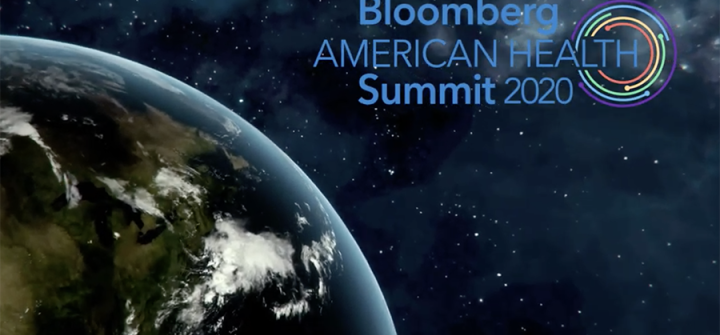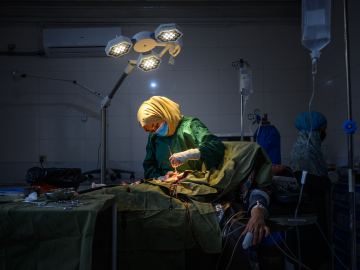Bloomberg American Health Summit 2020: America’s Reckoning with Public Health
Surging COVID-19 cases and politics that “fly in the face of sound science and data-driven policy,” have brought public health in America to “a moment of truth,” philanthropist Michael R. Bloomberg said yesterday as he launched the virtual Bloomberg American Health Summit 2020.
“The shameful crisis in American leadership has sown doubt and division,” said Bloomberg, the WHO’s global ambassador for Noncommunicable Diseases and Injuries and founder of Bloomberg Philanthropies. “It’s outrageous that public health leaders who work in a data-driven field based on honesty and all the tenets of science have been ignored and attacked by so many of our political leaders.”
The 2-day Summit brings together experts to discuss how to repair the nation’s health system as it confronts challenges on many fronts—from the pandemic, racism, violence, and the environment.
Urgent Steps Ahead on COVID-19
Anthony Fauci, director, of the National Institute of Allergy and Infectious Diseases, framed the discussion on COVID-19’s impact on the US:
- On why COVID-19 became so politicized: “It evolved at a time that there was just an extra amount of divisiveness,” deep-seated and combining with the “stress and strain of an election year to create the worst possible backdrop for a public health crisis when you need everybody pulling together.”On what needs to be done most urgently:
- On what America needs to do to "flatten the curve:" Everybody needs to admit that we have a problem. "We’ve got to own the problem. If you don’t own the problem, you’re never going to fix the problem."
Advancing Anti-Racism
The problems with the US's public health system cannot be fixed without addressing the racial inequities ripping communities apart—a thread that wove through all the Summit sessions.
A panel on racial equity tackled the challenges racism poses to the US's pandemic response specifically. Key takeways:
- On vaccine hesitancy: In communities of color, “People are afraid and rightfully so, when you’ve been burned so many times it is hard to go back to that same flame…” said Joni Holifield, founder of Heart Smiles in Maryland. But, she added: “I want people to understand that the COVID vaccine is not the racist enemy”—and that requires trusted messengers.
- On social injustice: “The fact is we are not going to be protected against other kinds of pandemics like this until we have what I call a different kind of herd immunity, which is being protected against all the negative social factors [that affect health] and protected against racism,” said Lisa Cooper,expert on racism and health, Bloomberg Distinguished Professor of Equity in Health and Healthcare at Johns Hopkins University
As Lisa Cooper pointed out, messaging about the interconnectivity of health issues must spread beyond the worst-affected communities, too. “What people don’t realize is what goes on with someone across town from me could be bad for me, too, and my children...so think about the fact that we’re not caring for the people who are most vulnerable in our society, says Cooper. That’s not good for any of us," as we see with COVID's impact on the economy, schools, etc. We need everyone to understand "that it’s not just about individual people making choices, it’s about the opportunities people have to make choices," she explained.
Ed. Note: Michael R. Bloomberg is a benefactor of the Johns Hopkins Bloomberg School of Public Health, which publishes Global Health NOW.
Join the 50,000+ subscribers in 170+ countries who rely on Global Health NOW summaries and exclusive articles for the latest public health news. Sign up for our free weekday enewsletter, and please share the link with friends and colleagues: http://www.globalhealthnow.org/subscribe.html






